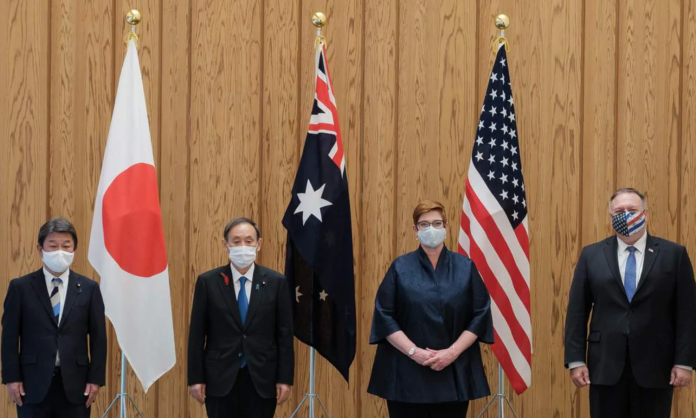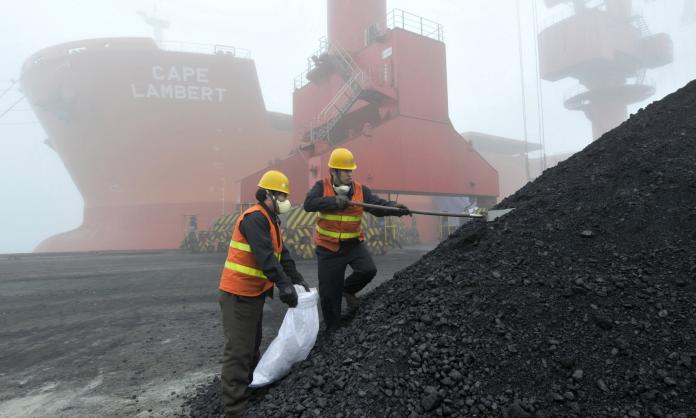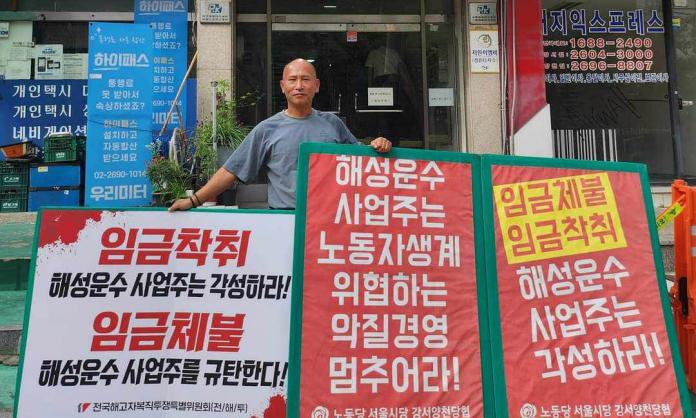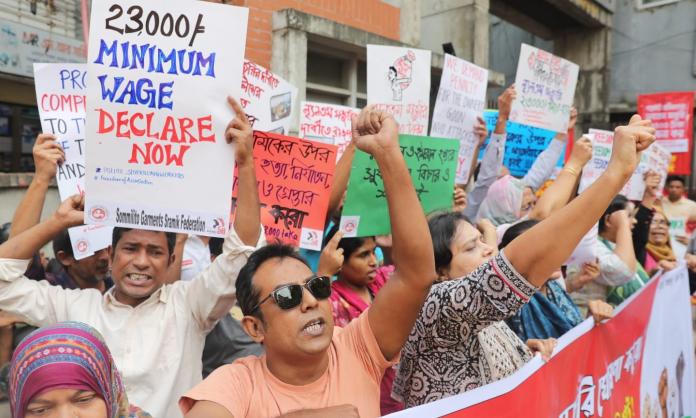Diplomatic relations between Canberra and Beijing have never been worse. In early October, Foreign Minister Marise Payne visited Tokyo to attend a meeting of the “Quad”—the four countries most concerned with the rise of China in the Asia Pacific: Japan, the US, Australia and India. The meeting discussed how the four nations might reduce their dependence on China for the supply of certain minerals and technologies, as well as how they might combat disinformation campaigns from authoritarian governments. China’s vice foreign minister denounced the meeting as “an anti-China front-line” or “mini-Nato” which reflected a “cold war mentality”.
The meeting came towards the end of a year marked by a tit-for-tat struggle between Australia and China. In May, China put up tariffs on Australian barley and suspended beef imports after Prime Minister Scott Morrison backed an inquiry into the origins of COVID-19 that was widely seen as an attempt to blame China for the pandemic.
Then in September, Australian journalists Bill Birtles and Michael Smith fled China after being visited by China’s state security ministry. In response to the outcry generated by this, Chinese state-run media revealed that four journalists from Chinese outlets had been raided by ASIO back in June as part of an investigation into foreign interference. The Australian government has also cancelled the visas of at least two Chinese scholars, citing “security concerns”.
But despite these tensions, trade between Australia and China is going strong. The value of Australian exports to China hit a record high of $14.6 billion in June, after China’s economic reopening and as a result of both Beijing’s post-COVID stimulus plan and higher coal and iron ore prices. Exports to China made up 48.8 percent of all Australian exports, an increase of a third since February. Around 80 percent of all Australian iron ore exports go to China.
This economic lifeline is all the more important considering the blow to Australia’s economy caused by the COVID-19 pandemic. The Morrison government’s optimistic budget predictions are based on the assumption that China will return to 8 percent GDP growth by next year, and that Australia will be supplying the Chinese economy with the raw materials it will need for this expansion.
This vital economic relationship forms the background to the concern expressed by some business leaders, establishment politicians and policy experts over Australia’s aggressive attitude towards China. Labor’s Joel Fitzgibbon has attacked the Liberals for having “started a war” with China, while former Australian prime ministers Kevin Rudd and John Howard have urged the two countries to reset diplomatic relations. Prominent Singapore diplomat Bilahari Kausikan has called Australia’s response to China “too extreme”.
Complicating matters for the Australian government is the growing rift between the US and China, which is reshaping economics and politics on the international stage. A new cold war is solidifying with the US moving against Chinese technology companies TikTok and Huawei and threatening to decouple the two economic powers. For its part, China is trying to use the instability in the international order, which has been exacerbated by the pandemic, to expand its influence in the Asia Pacific region and beyond.
The Australian government is thus walking a tightrope between the world’s two superpowers. Sitting uncomfortably with Australia’s economic relationship with China are the deep political and cultural ties between Australia and the US. In a situation where the US is increasingly trying to isolate China, considerable pressure is being put on Canberra to join in.
But Australia is not simply at the beck and call of the US government; it is an imperialist power in its own right. Reinforcing the pressure from the US are Australian government concerns about China’s rising influence in the Asia Pacific region. How long can the Australian government tread the line between its desire to keep profits rolling in during these turbulent economic times and the pressure to check the growth of Chinese influence in what Australia regards as its own backyard?
The federal government has attempted to reconcile this conflict between economics and politics through what Morrison calls a doctrine of “strategic patience and consistency”. This strategy emphasises the mutually beneficial nature of Australia-China relations, while seeking to put the blame for any strain within that relationship squarely on China. At the same time, Morrison is looking to strengthen the alliance between Japan, the US and other nations on the explicit basis of limiting Chinese influence in the Asia Pacific and putting pressure on Beijing to act “responsibly”.
Morrison also told the Australian Financial Review that whoever wins the US presidential election must understand “the absolute priority of engagement in the Indo-Pacific”. In this way, Morrison is seeking to cement US-Australian hegemony over Asia while simultaneously trying to stop the conflict from escalating to the point where it would blow up economic ties in the region.
There are clear tension points in this strategy, as well as a staggering amount of hypocrisy. While China has undoubtedly been throwing its weight around as it strengthens its position as an imperialist power, it is those countries aligned with the US that currently have the most influence and power across the region. Morrison might like to present China as the source of all regional conflict, but the Australian government has gone out of its way to make clear its commitment to continued Western dominance. In June, for example, Morrison announced a $270 billion military spending blitz, citing Australia’s position at the “epicentre” of “strategic competition between China and the United States” as justification. Morrison also currently has a foreign relations bill before parliament that, if passed, would give the federal government the ability to cancel international agreements by universities, state governments and local councils that are not aligned with what the federal government deems to be in Australia’s interests. The bill builds upon Morrison’s long-standing campaign against the Victorian state Labor government’s participation in the Chinese government’s “One Belt One Road” initiative.
Not surprisingly, the government’s criticisms of China have had an effect on public opinion. The Lowy Institute poll found that Australian attitudes towards China are at their lowest point, with only 23 percent of people trusting China to do the right thing on the world stage, 94 percent wanting Australia to be less economically dependent on China and 55 percent seeing China as an important economic partner for Australia—down from 82 percent in 2018.
There are some signs that China is open to cooling down the conflict with Australia, at least for now. After months of attacks on Australia by the Chinese government, Fu Ying, the former Chinese ambassador to Australia, has called for an end to the “confrontation and abusive language” between the two countries. Wang Xining, deputy head of mission for the Chinese government, similarly said in August that Australia and China should not let “a cold, hard mind cast a shadow over our partnership”. Geoff Raby, a former Australian ambassador to China, has argued that these statements and other actions show that China is trying to cool geopolitical tensions on a number of fronts in the lead-up to the US election in November. Another sign of this is that Chinese threats to tighten restrictions on Australian coal have largely evaporated.
However, there are significant forces working to undermine the possibility of a stable, lasting agreement between China and Australia. Whatever pragmatic relationship is established will undoubtedly come under both international and domestic pressure in both countries. How this plays out will largely depend on how US-China relations develop. While Trump has been openly aggressive towards China, Biden has also positioned himself to continue, if not deepen, the campaign to isolate China. With Biden having a stronger focus on rebuilding ties with countries put off by Trump’s abrasive style, such as Germany, he might be in a better position to do this than Trump. While the debate over Australia-Chinese relations will continue, greater instability on a regional and international level will make it harder for Morrison to continue on the path he has so far managed to walk.












